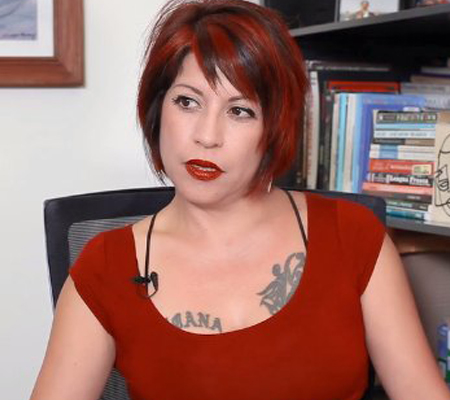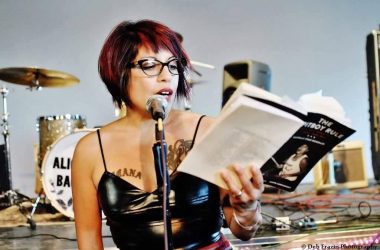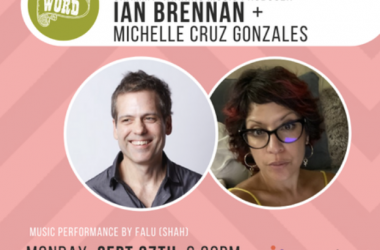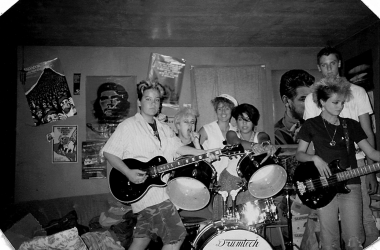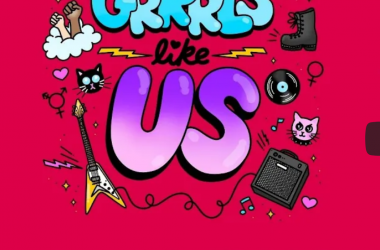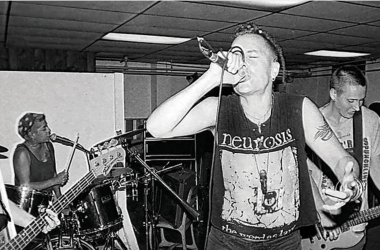By Michelle Cruz Gonzales

In 1998, I broke up with punk rock. It was not a good boyfriend. It liked fucking me, but it wouldn’t introduce me to its mom, worried she’d notice that I wasn’t just punk rock, but that I was something else too, something/someone it didn’t quite understand. I feared I had aged out too. Standing around at 924 Gilman hurt my feet, the cold, hard cement floor. All the young people, seeming to get younger, as I got older didn’t bother me. I quite like young people. I gave birth to one, and I teach at a community college.
I broke up with punk rock, but it appears I’m back, having never really left at all. Still, I feel I have some explaining to do.
For me, punk rock was always about participation. I starting listening to punk at thirteen, was in a band, Bitch Fight, by the age of fifteen, and in 1987, by the age of seventeen, I had moved to San Francisco with Bitch Fight, and we began playing shows with bands like MDC, Operation Ivy, Frightwig, and Crimpshrine. When Bitch Fight broke up a year and a half later, I did a stint in Kamala and the Karnivores, and started Spitboy. After Spitboy broke up in 1997, Karin (guitar), Dominique (bass guitar), and I stayed together, and formed Instant Girl, a band we knew that would be short lived because Dominique was headed to Yale to study architecture. No longer hungry to continue participating in this way, I figured I should finish school too, and I got myself accepted, and a large scholarship, to Mills College. I wanted to study creative writing and English. My feet hurt from standing around on cement in my job of fifteen years as a preschool, and Gilman, and my back from hauling around drums all those years. My band days were over, and I was fine with that. I had said a lot through the band, made a contribution, traveled the world. I wanted to study. I wanted to write. I got married too – I felt like traitor, but I was happy.
Punk rock has a way of making you feel like a traitor when you decide to grow up a little, go to college, get married. At least it did back then, but after years of dating men in the scene who liked to pretend they didn’t have families, didn’t come from somewhere, let alone introduce me to their parents, I married a Mexican. I had finally been true to myself.
For about ten years, when I was in my thirties, nursing my son, going to graduate school, I hardly ever mentioned to anyone that I had been in a band that traveled the US, Europe, New Zealand, Australia, and Japan. A band that put out records, did radio interviews, and for fanzines, a band that got fan mail. I didn’t want to be another boring adult talking about her glory days. Everyone wants to be rock star. Everyone wants to write a book too, but as a wise professor once said, you can’t, especially the later, standing around at parties talking about it. The cool thing about punk rock is that you actually start a band by standing around talking about it. That’s how bands start. Someone says let’s start a band, you think of some cool names, you decide who’s going to play what, you learn to play your instrument if you don’t know how already, and you write your first song. It’s what attracts people to punk rock in the first place – you don’t need to go to Mills College or Yale to do it.
While some people get into punk rock because they just want to fuck shit up, many of us call punk home because of its access to radical politics and people who hold them, people who question authority, people who question their own thoughts, people who read books, and attend demonstrations, and now discuss white privilege, people who don’t believe we should give up our basic privacy rights to protect ourselves from actual, or so-called terrorism, people who aren’t afraid to call themselves feminists. And it’s for all these things that I’m back, lending my voice, participating, now, in the best way I know how.

